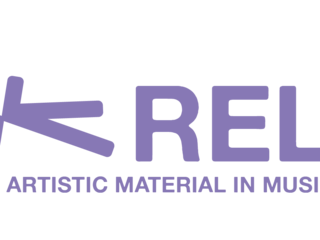Research projects
Modes and epistemes of dance knowledge communities.
Empirical-qualitative and epistemological investigations of analog and digital mediation practices in contemporary dance (DFG research project 2023-2025)
Based on an empirically based comparison of analog and digital mediation practices in contemporary dance, the project explores the genesis and mulit-modal constellation of physical and dance knowledge. The digital mediation formats, which have developed in leaps and bounds in the wake of the corona pandemic and are becoming increasingly popular, open up the potential to investigate processes of emergence, modes, repertoires, and hierarchies of knowledge and mediation cultures in dance in comparison with presence-based practices. A praxeological approach aims at examining dance mediation processes in the complexity of their realities and the multi-layeredness of the participants (body, language, music, material, etc.) and captures them in their bodily situatedness.
For this purpose, the project pursues a fundamental qualitative-empirical, ethnographic research in connection with discourse- and power-analytical perspectives. This will be investigated in the project with two empirical foci. On the one hand, contemporary (semi)-professional training and educational contexts are focused on, in which a broad spectrum of dance techniques and different formats of dance mediation are identified. On the other hand, the focus is on digital formats of dance mediation that were conceived as online lessons on the one hand and as informal forms of mediation on the other hand, as they are shared, commented on in detail and processed in TikTok or Instragram. In this subfield, the focus is on questions specific to digital learning cultures: How is knowledge articulated and produced in (virtual) communities? How is learning to dance negotiated performatively and discursively by users
The division into two empirical areas along primarily analog and digital mediation formats is understood as a heuristic separation. The aim is to question overarching dichotomous constructs of analog/digital, among others, and to grasp dance mediation events in their different multimodal and multimedial constellations in a differentiated and reciprocally reflexive way in order to re-figure discourses on bodily presence and to analyze the genesis of knowledge constellations. Modes and epistemes of mediation and appropriation procedures are analyzed in relation to the inclusions and exclusions practiced with them, and dimensions of power and empowerment are discussed.
Within the framework of the research project and in cooperation with the Gesellschaft für Tanzforschung (GTF) as well as numerous international researchers, the conference "Digitalitäten und Ökologien im Feld des Tanzes / (Virtual) Ecologies inthe field of dance" will take place from 27-29.10.2023.
Director: Prof. Dr. Yvonne Hardt
Collaboration: Marisa Berg, Anna Chwialkowska
DFG funding number: 507726012
Theoretical Turn?
On the Institutionalization of Theory(s) in Contemporary Dance Education" (2018 - 2021 BMBF funded, focus: Small Subjects - Big Potentials).
The 3-year dance research project based at the ZZT inquires into the function, concepts and practices of "theory" teaching in contemporary dance education.
The project, which is both basic and application-oriented, investigates artistic-scientific teaching and learning situations in European study institutions: Partners are, in addition to the ZZT, the SNDO Amsterdam, DOCH Stockholm, HZT Berlin, Justus-Liebig University Giessen, University of Music and Performing Arts Frankfurt.
In dance studies research, contemporary dance in Western Europe has often been characterized since the 1990s by artists' references to theoretical discourses (including philosophical, political, and cultural studies). At the same time, an increase of "theoretically reflexive" framed study parts can be observed in practical dance curricula; recently, these often take place embedded in or closely connected to practical teaching formats. Both developments will be considered in relation to each other. For this purpose, international actors and institutions in the field of theoretical teaching within contemporary dance education will be networked for the first time, and the developments of internal school curricula, study profiles and tender texts will be evaluated over a period of 10 years. By examining and analyzing selected educational contexts, the relationship between practice and scholarship, which is being addressed with increasing urgency in many disciplines, will be placed in a concrete research setting. The expected findings are interdisciplinary.
Direction: Jun.-Prof. Dr. Constanze Schellow
